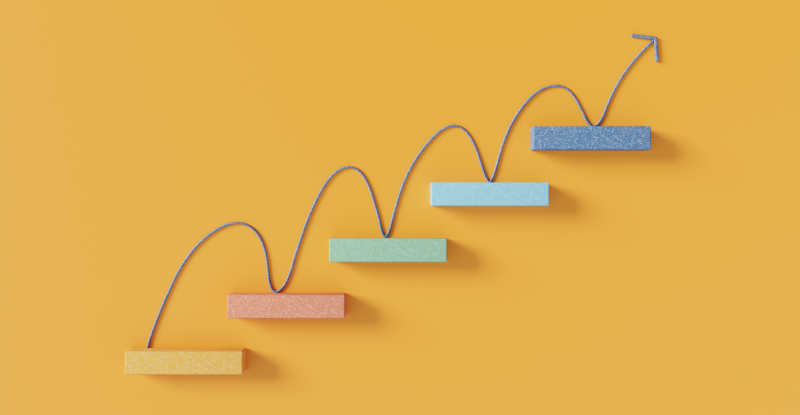
In our podcast episode, Andrew Smith, CPA, CA, chats with Vivian Tse, manager, communications at CPABC, about debt management and the ways you can reduce your debt. Part of our Coffee Chats with CPABC podcast series.
If you’re struggling with mounting credit card debt as household expenses climb, you are not alone. According to the Sands & Associates’ 8th Annual BC Consumer Debt Study, over 55% of respondents who have consolidated debt for debt relief indicated that credit card debt was their main source of debt.
While mounting debt is stressful, debt can be resolved with careful planning. Here are five tips on how you can conquer debt:
- Pick a timeframe for paying off debt
When you are developing a plan to get out of debt, it’s important to pick a timeframe for when you want to pay off your debts. For most, the timeframe to pay off debt should be within 60 months (five years). This timeframe gives you a long enough window to pay back your creditors and you'll see more progress in reducing your debt than over a shorter period.
This doesn’t include your mortgage, because that's usually amortized over a 25-year period, but includes credit cards, lines of credits, and other shorter-term debts that you are able to tackle within a specific window of time.
- Map out your debt and budget
Develop a plan of action for your debts by mapping them all out. Debt can include credit cards, lines of credit, mortgages, car loans, payday loans, utility bills, cell phone bills, personal taxes, and unpaid fines.
Once you’ve identified everybody you owe and your outstanding balances to them, determine the interest rates and repayment terms. If you are unsure of all of your debt, consider requesting a credit report as it provides information on who your creditors are. Just beware that a credit report does not include debts to the Canada Review Agency (CRA); log into your CRA account for this information.
Once you’ve established yours debts, determine what your cost of living is and prepare a budget to regularly set aside funds towards debt repayment. When determining your budget, you can consider following the “50/30/20” guideline, which involves allocating 50% of income towards your needs, 30% towards your wants, and 20% towards your financial goals.
Needs are expenses you can’t live without, such as rent, groceries, cell phone bills, and car payments. Wants are things like hobbies, dining out, streaming subscriptions and discretionary shopping – things that we do to make ourselves happy. Finally, your financial goals should include savings for emergencies, your retirement, and debt repayment.
For example, if you are making $3,000 a month, $600 (20%) should go towards debt repayments and saving for retirement/emergencies. As you plan your budget, you may look at the picture and realize you may not have enough to pay off the debt in your selected timeframe and need to adjust your strategy or change how you spend your money to make your debt repayments. This is a good way to take inventory of your financial situation.
- Pay off the debt with the highest interest first
Once you know how much you can afford to pay towards your debts, focus on paying off the debt with the highest interest rate first. Once you tackle that debt, move on to the one with the next highest interest rate. This will help minimize the amount of interest you pay, saving you money.
If you have two debts with the same interest rate, you can pay off the one with the smallest debt level first. This will also help you feel like, "Hey, I can now put more against the next one."
An option many people don't know is that sometimes there is room for negotiation with creditors. As part of your plan, you could contact your creditors and request that they reduce the interest rates that they're charging you. However, this is only going to provide a short-term reduction in the interest rate on the debt, so always think about how quickly you can pay this debt off once they've provided that reduction.
You can also talk to your financial institution about obtaining a consolidation loan to pay off your debts. This is a good way to bundle all your debts together and pay a higher interest rate debts with a lower rate. However, the lender may request that you close the accounts once they are paid off to ensure that you are not increasing your overall debt.
- Consider borrowing against your home equity
Another way to get a consolidation loan is to borrow against the value of your house – which is considered a home equity line of credit. In the current housing market, there’s probably not a lot of risk in the short-term as interest rates remain very low.
However, the Bank of Canada could start raising rates in late 2021 or 2022 if inflation continues to speed up. If interest rates do go up and you have a variable interest rate on your mortgage and home equity line of credit, you will see your carrying costs of that debt increase. This would ultimately reduce your disposable income and your ability to pay your living expenses and any other debts you may have.
- Seek professional help from a licensed insolvency trustee
If you find that you are unable to pay off your debt within five years or struggle with mounting debt without a solution, you can seek professional support from a Licensed Insolvency Trustee (LIT). While debt settlement and credit counselling agencies are also available, they are not licensed professionals and some creditors will only work with a LIT.
A LIT is an independent officer of the court, which is licensed by the federal government to provide Canadians advice on how to best manage their debt. Through LITs, you can receive accurate and impartial advice on your debt. LITs will typically offer a free and confidential consultation to discuss your situation and assess all potential options with you.
Andrew Smith, CPA, CA, CIRP, LIT is a Licensed Insolvency Trustee at Sands & Associates Trustees in Kelowna. Passionate about helping British Columbians deal with their financial situations, Smith is a CPA financial literacy volunteer. Visit our FinLit site to bring a financial literacy session to your community.



